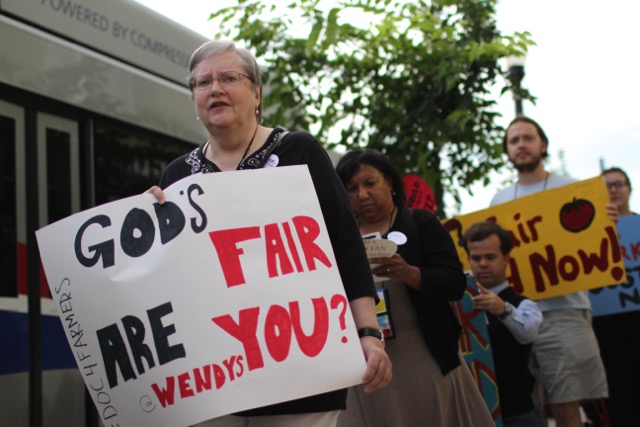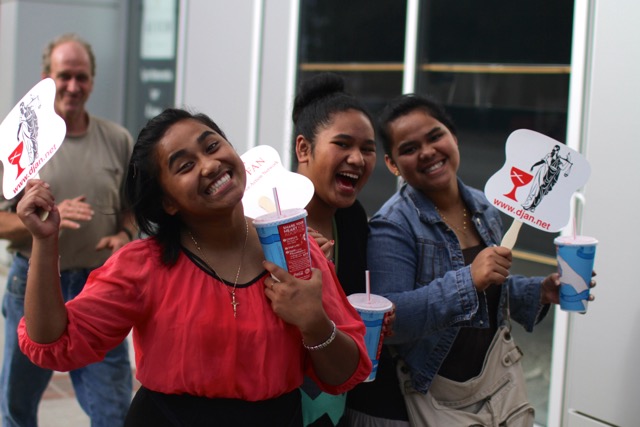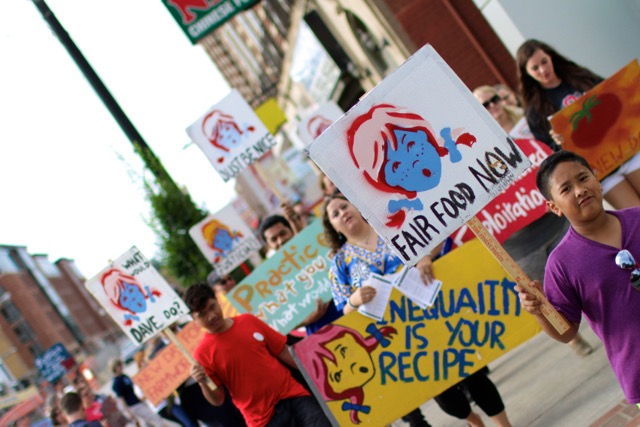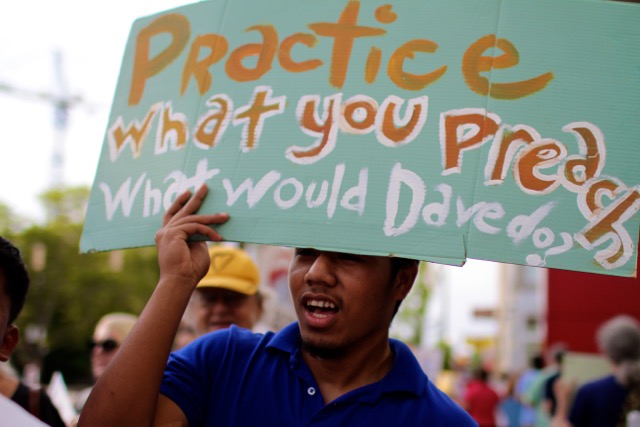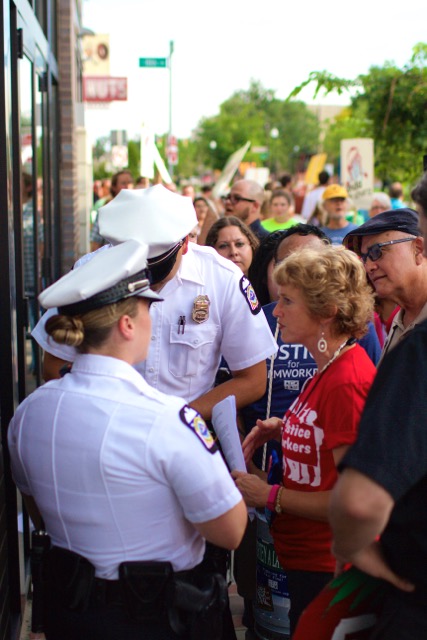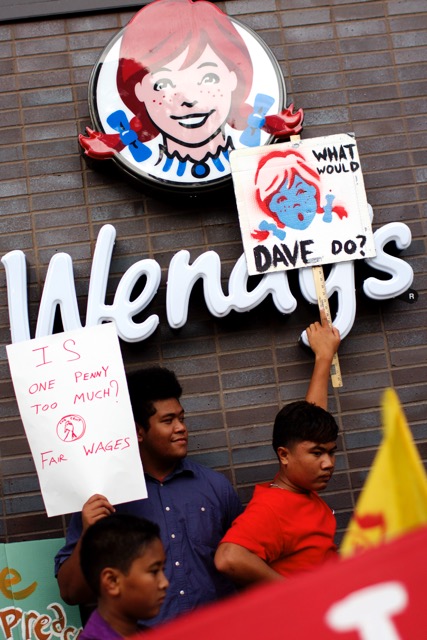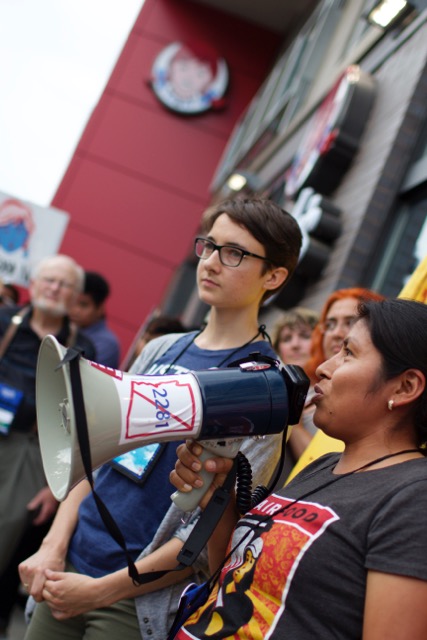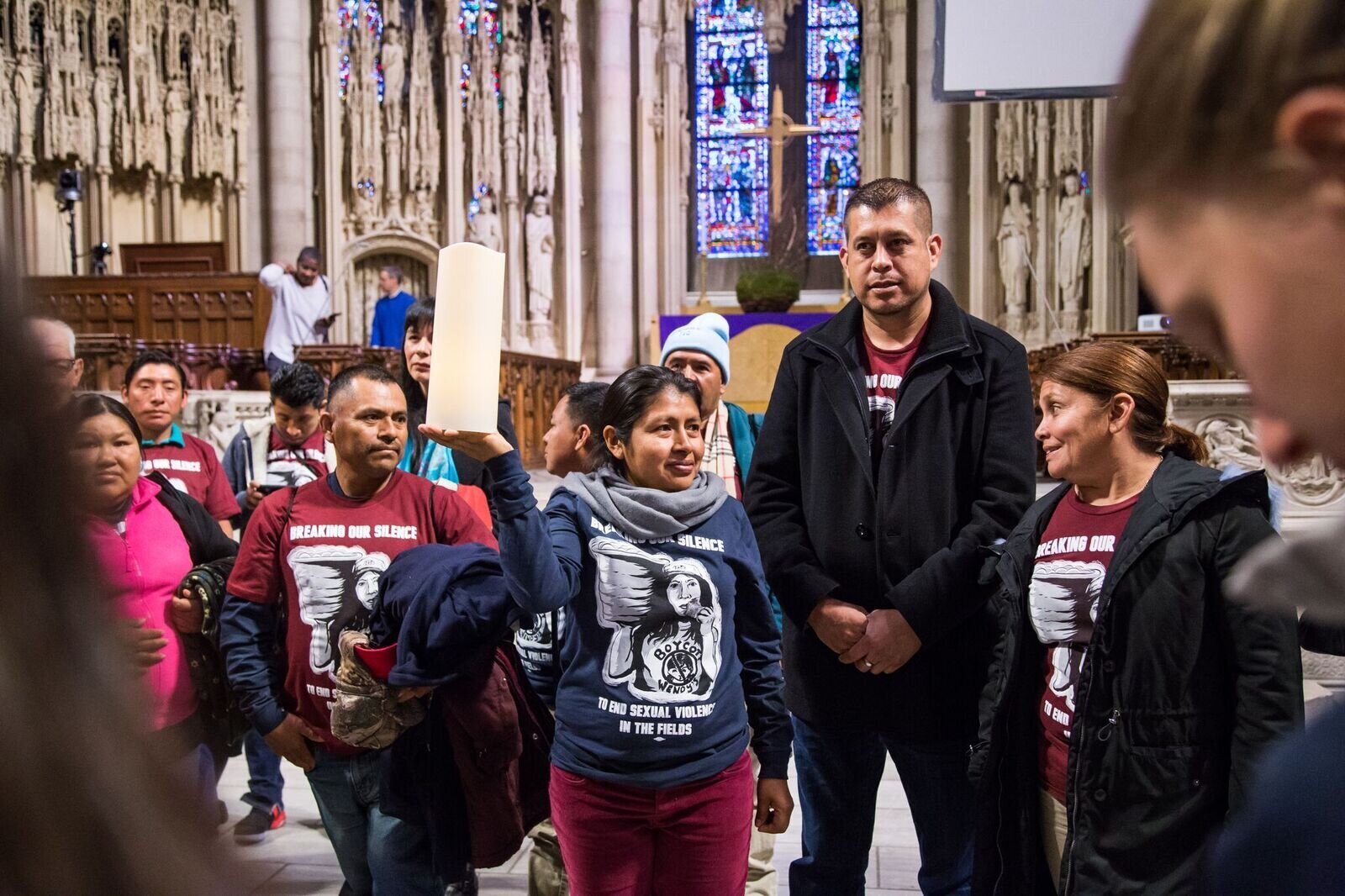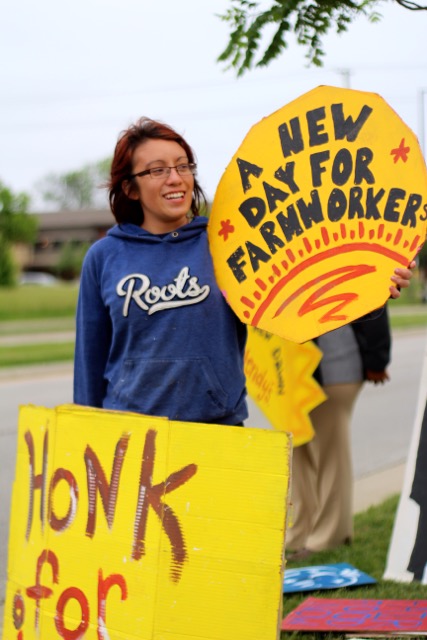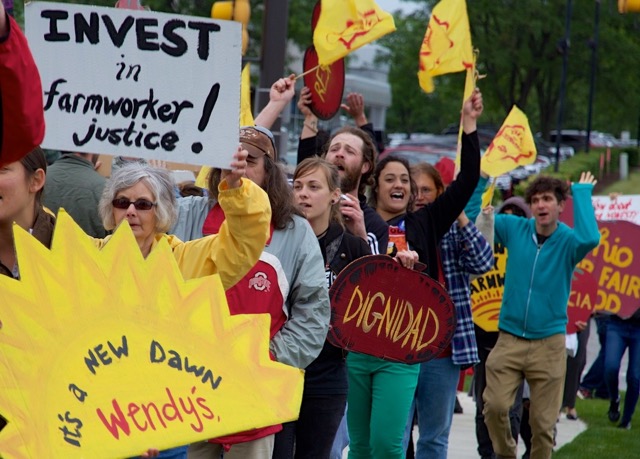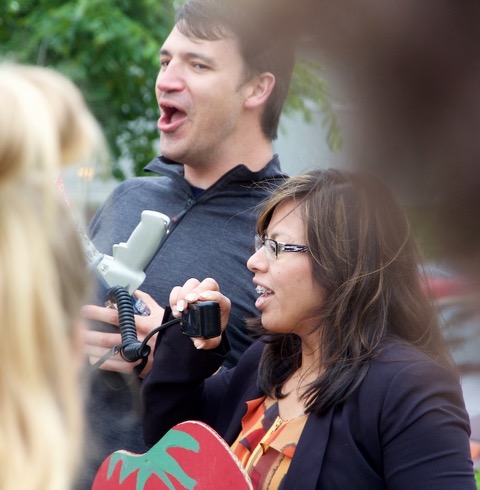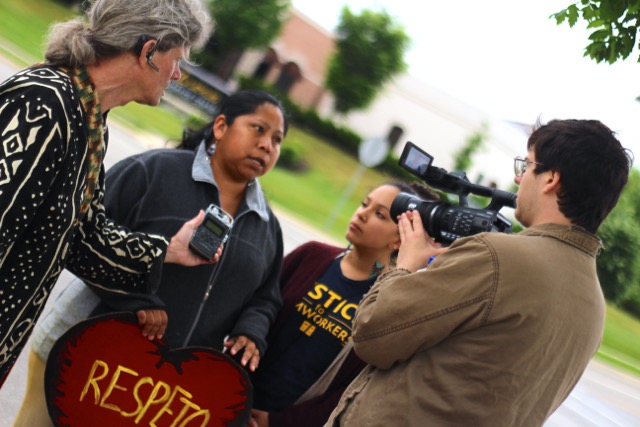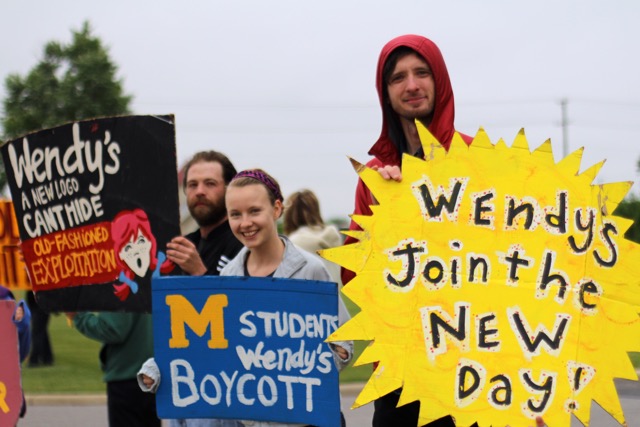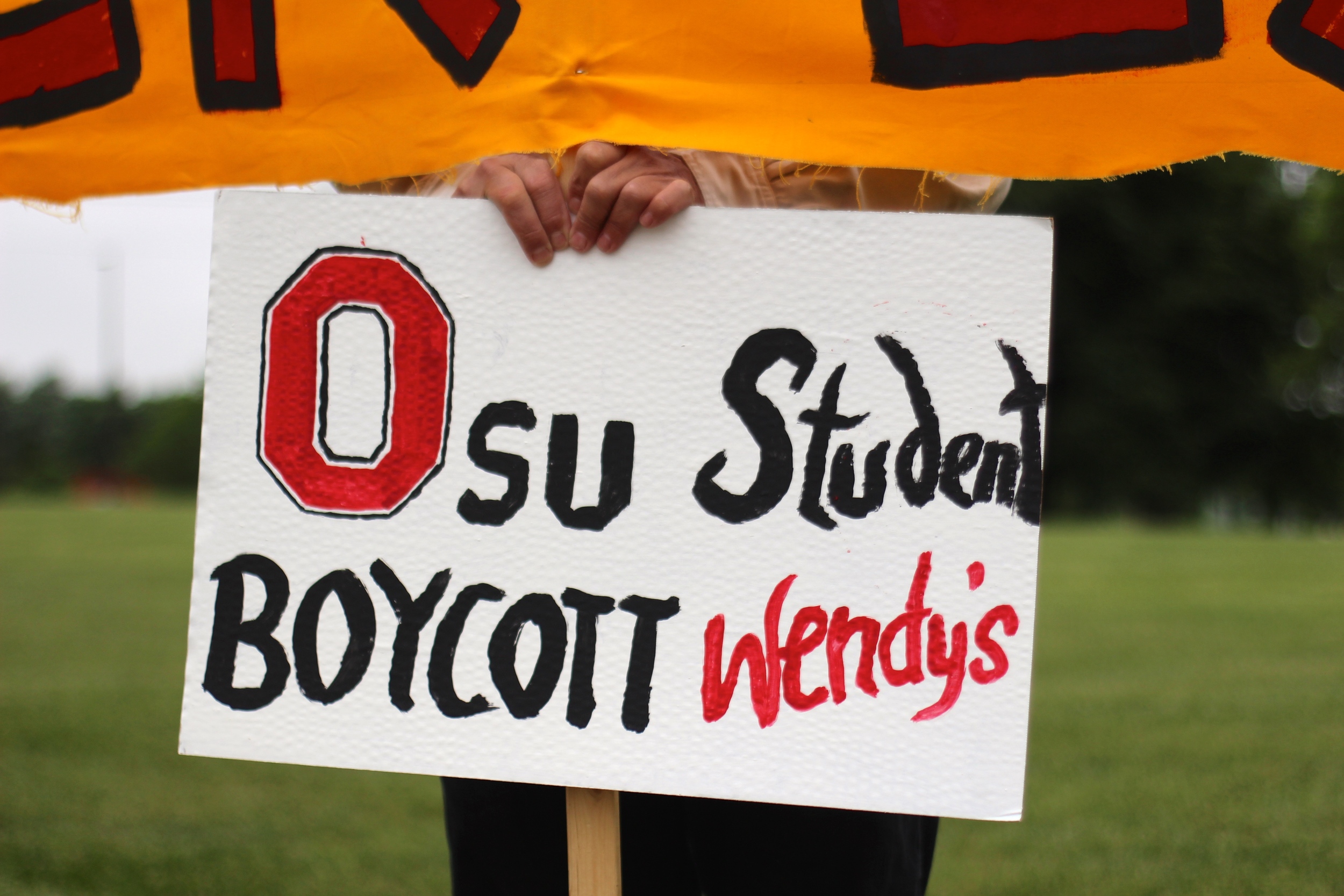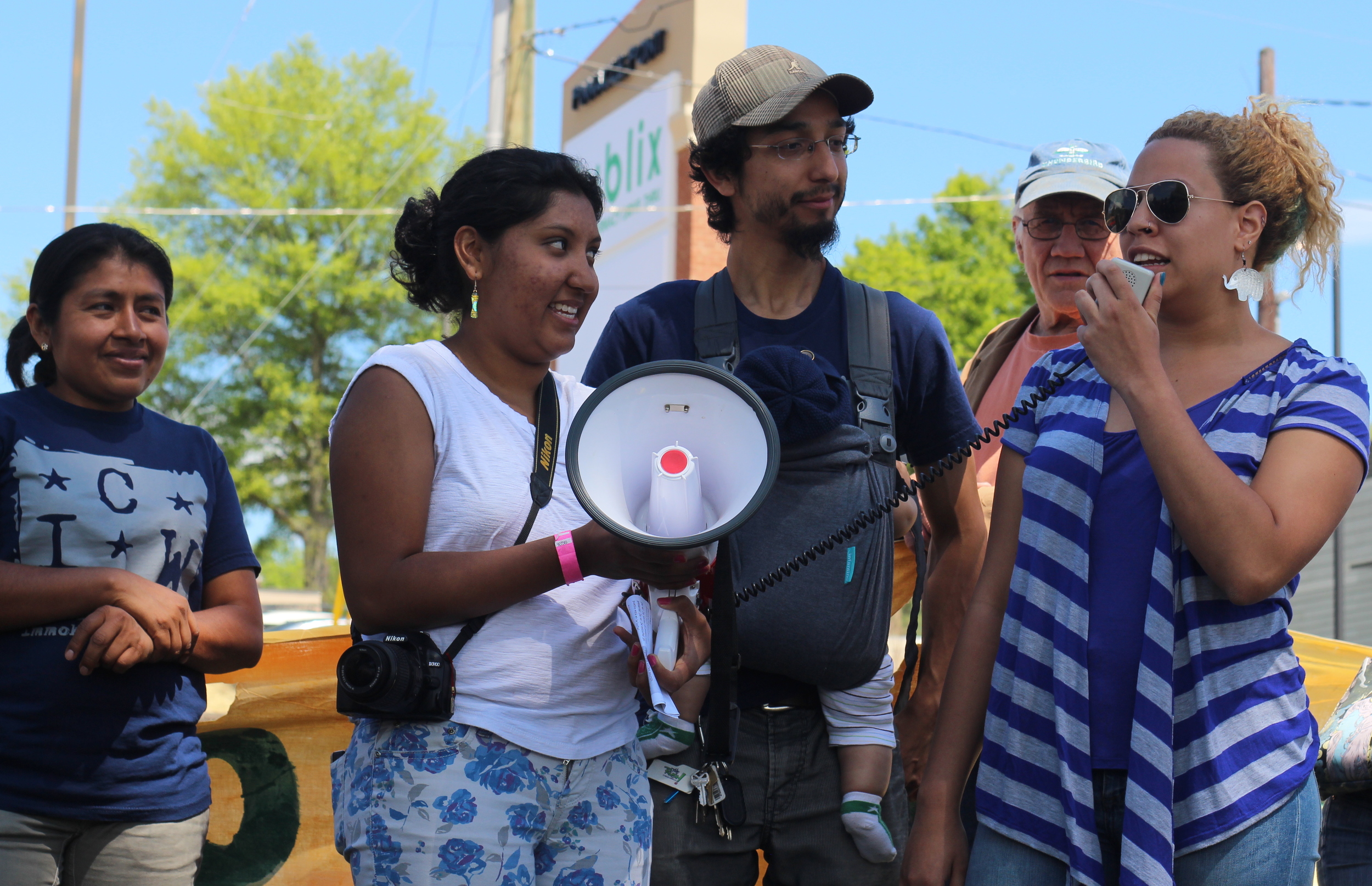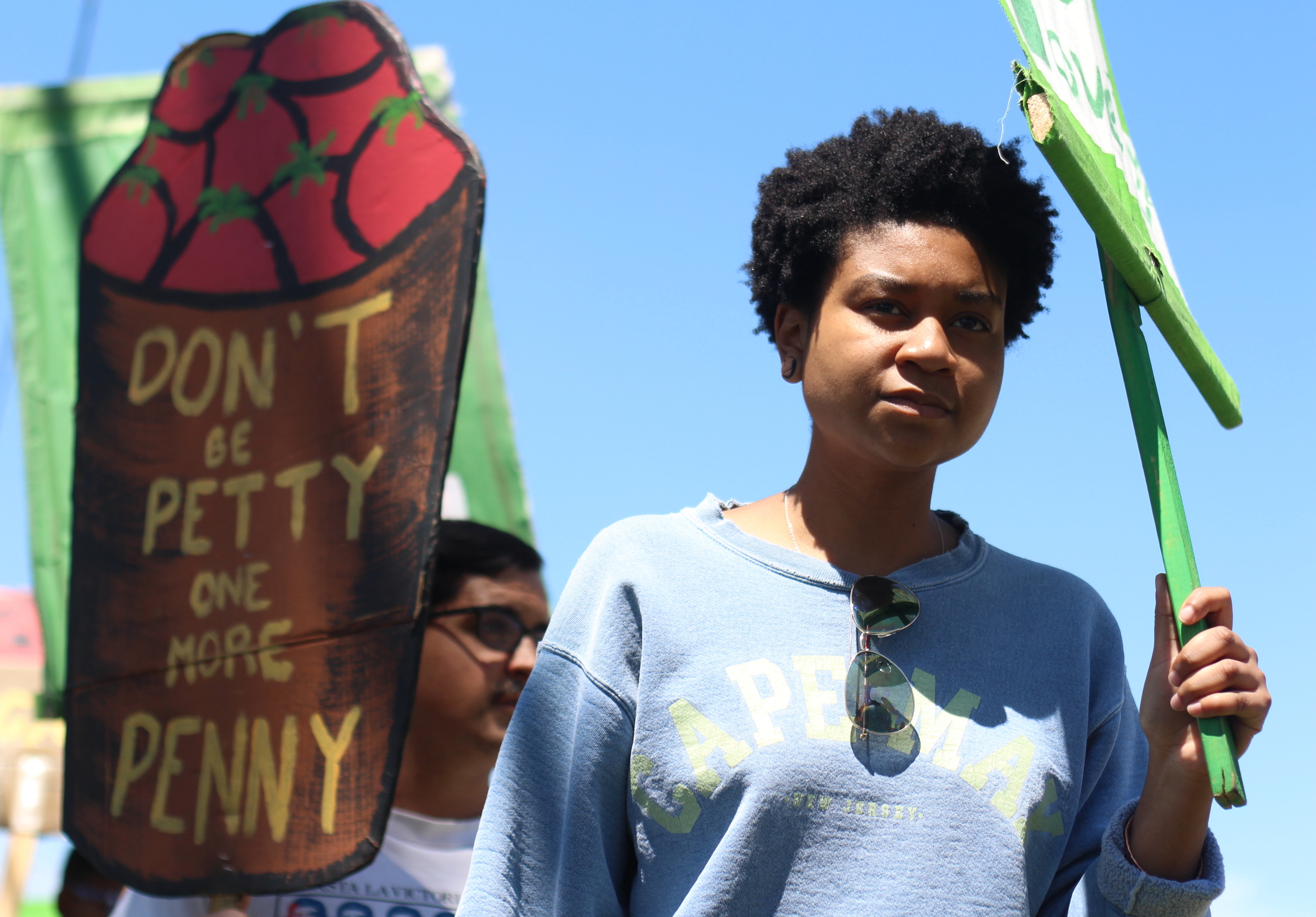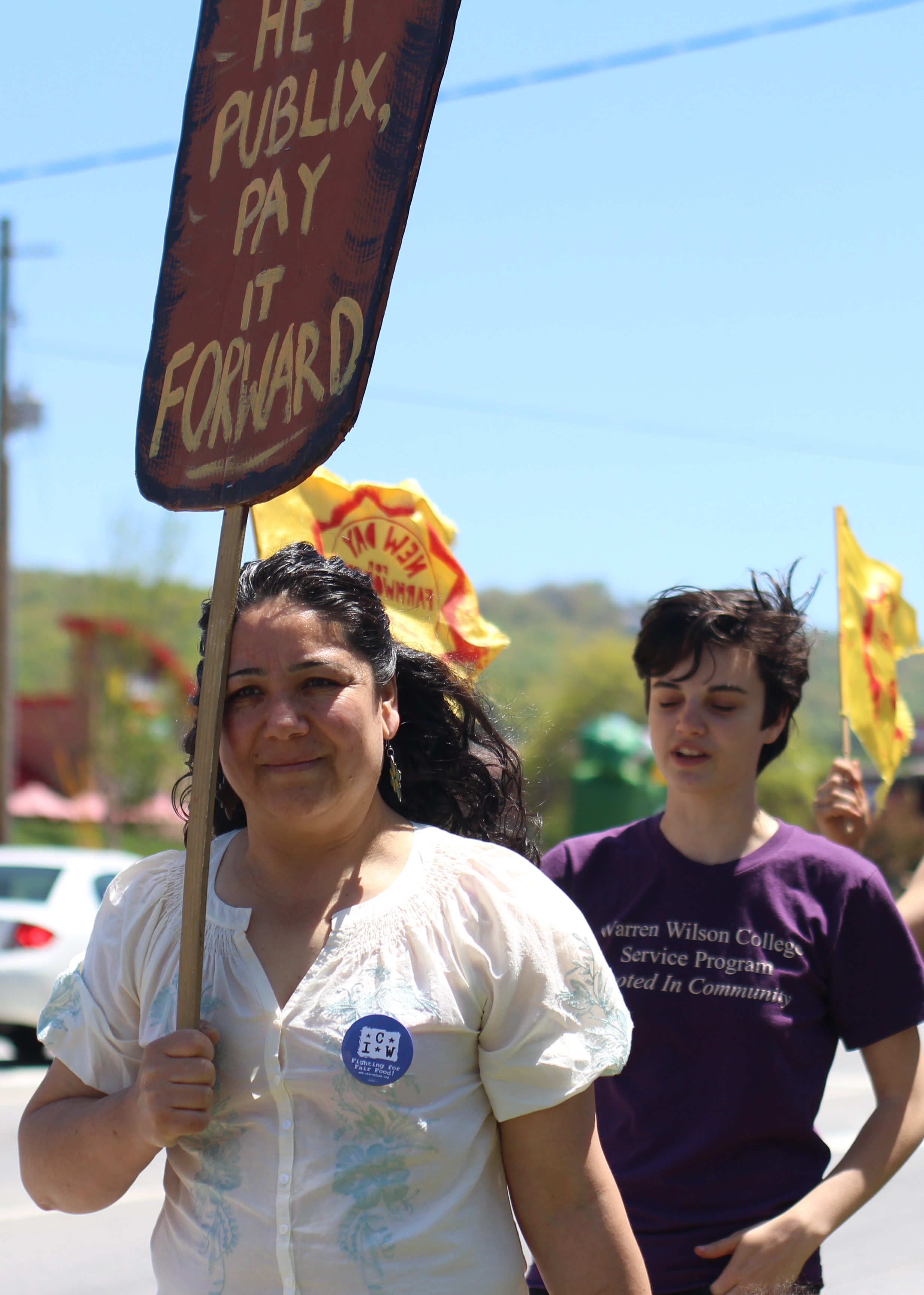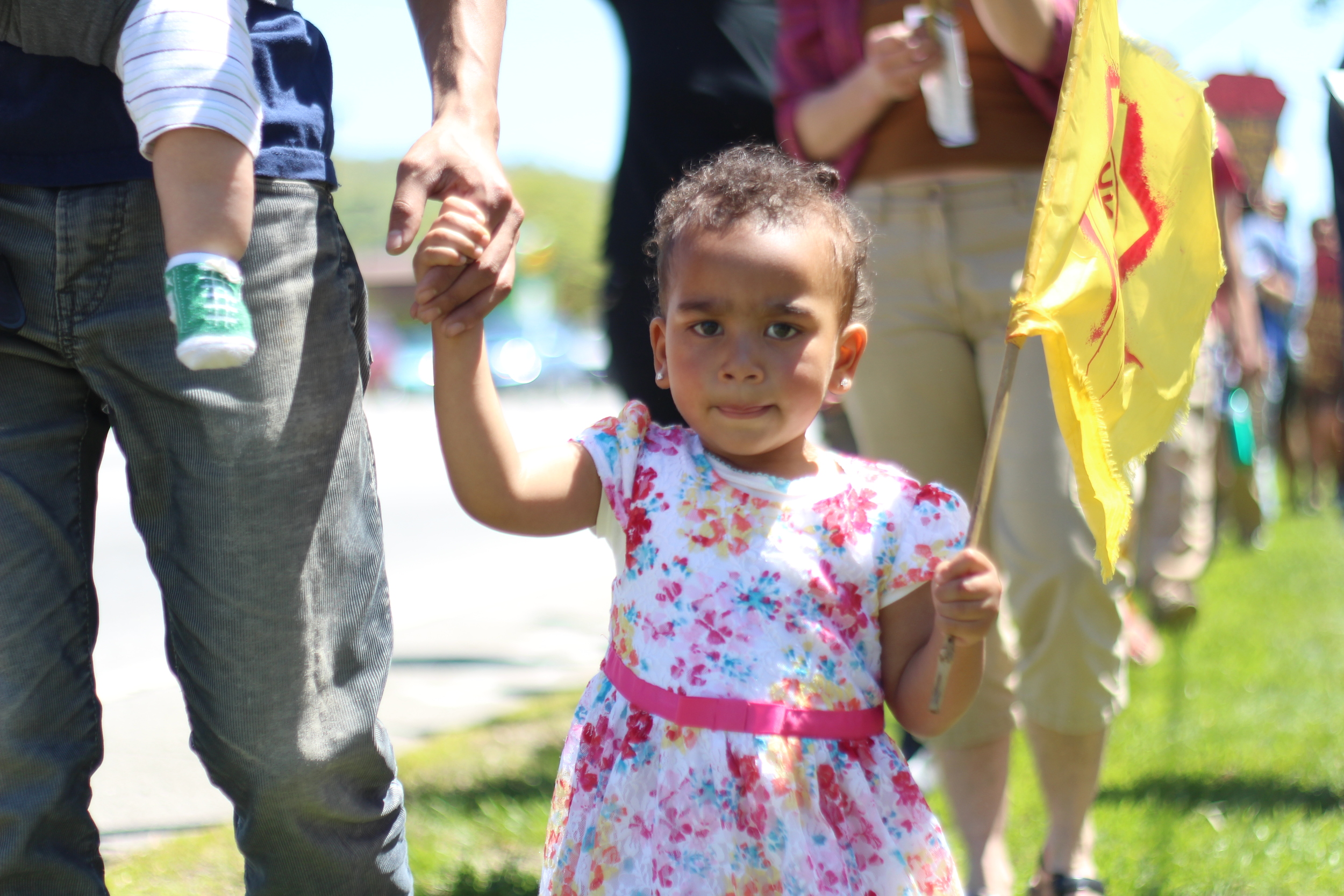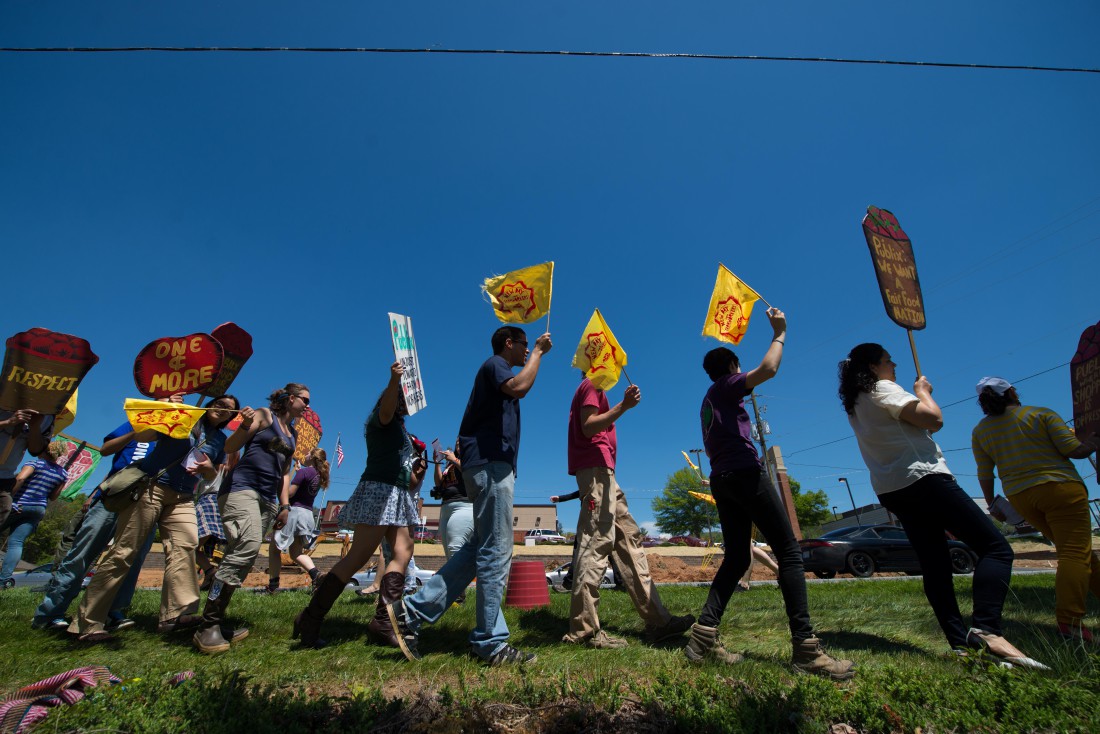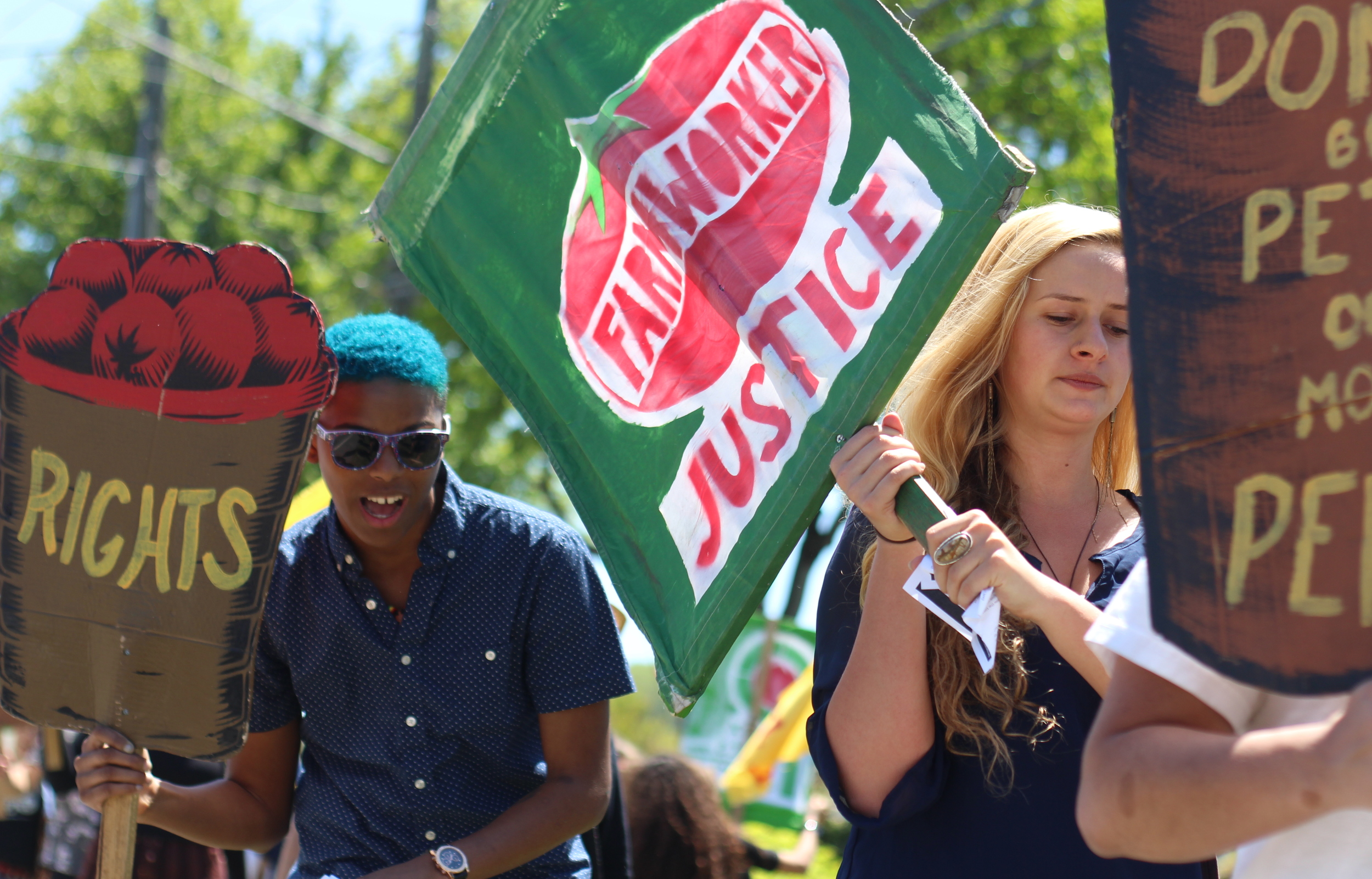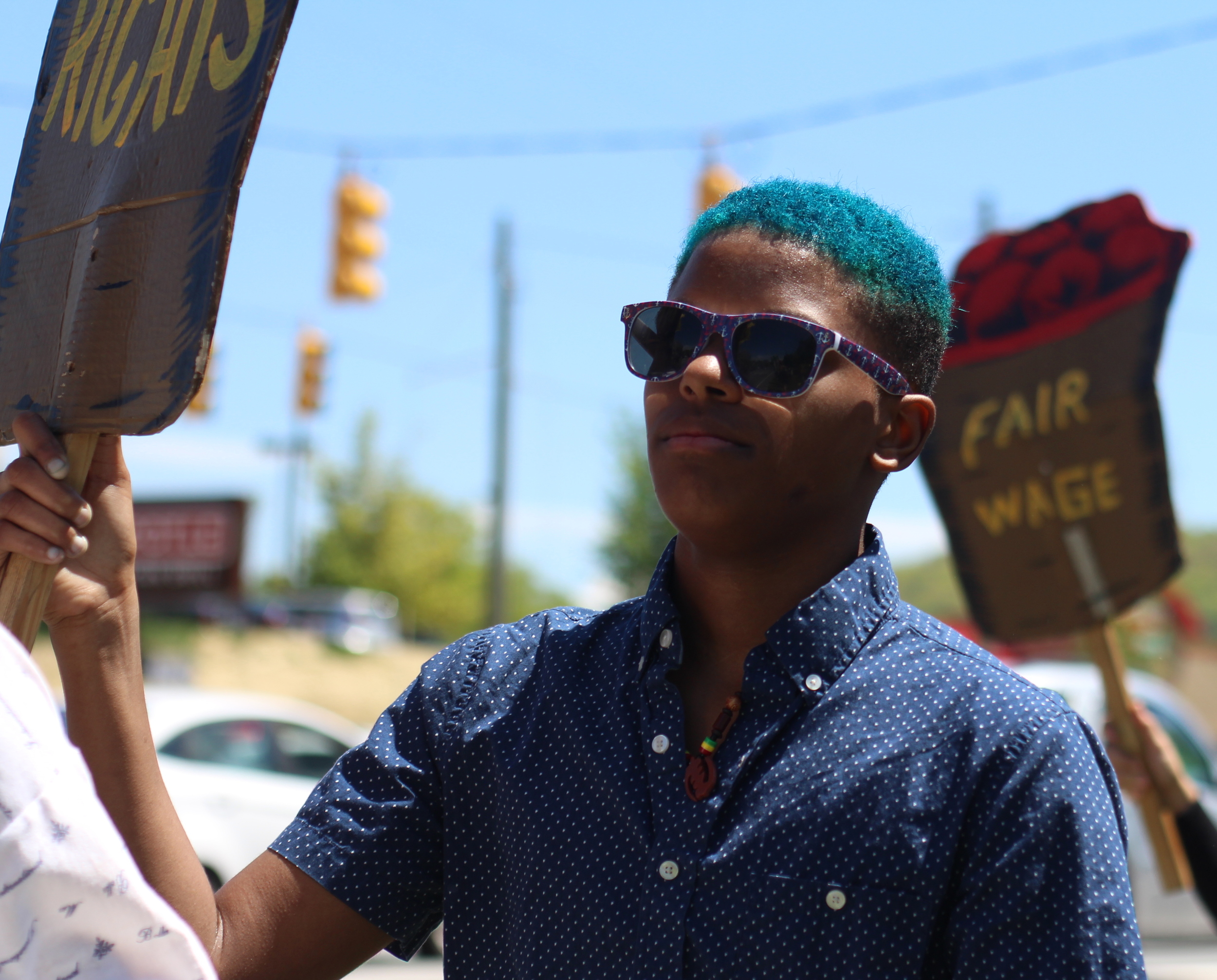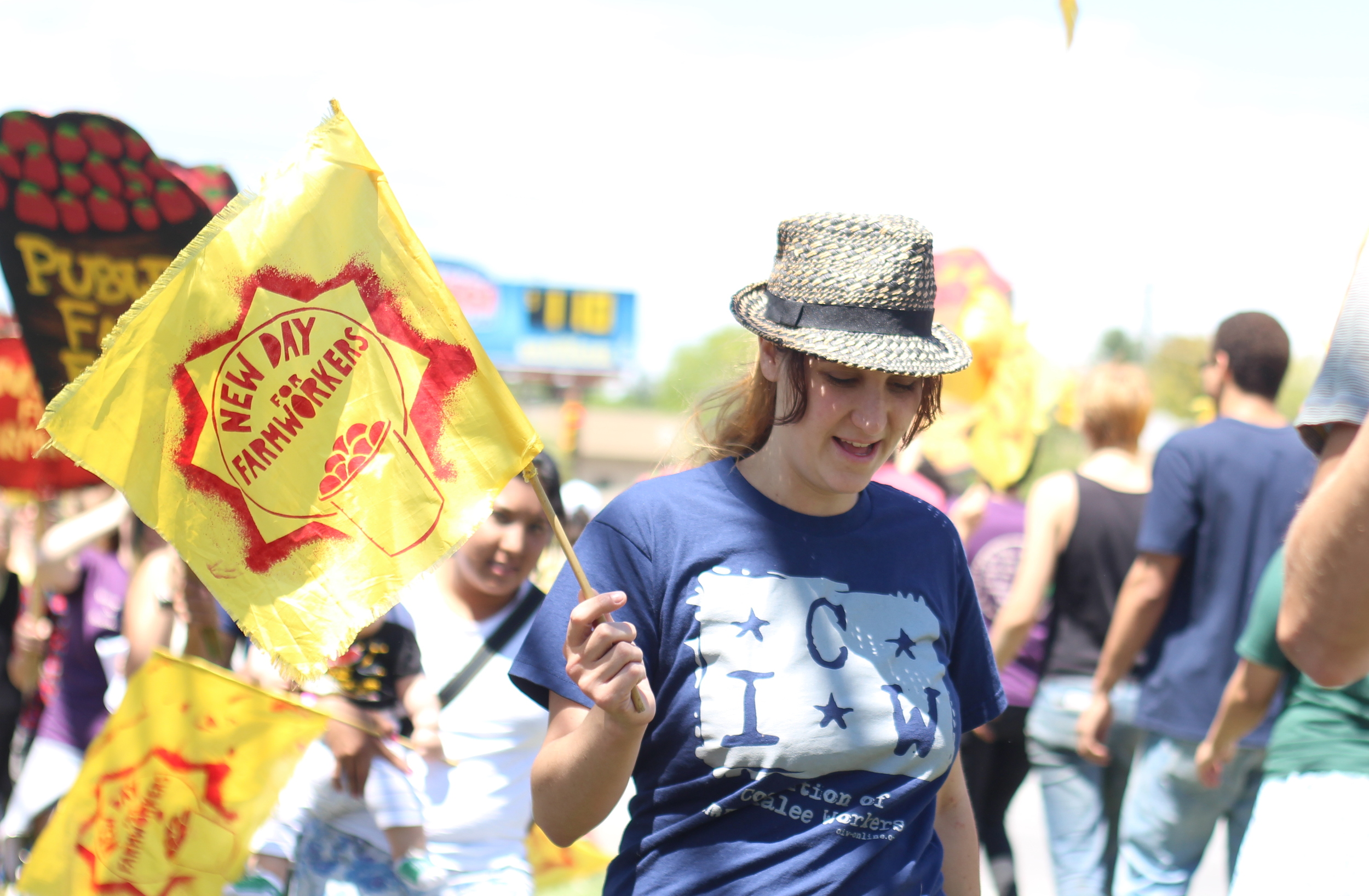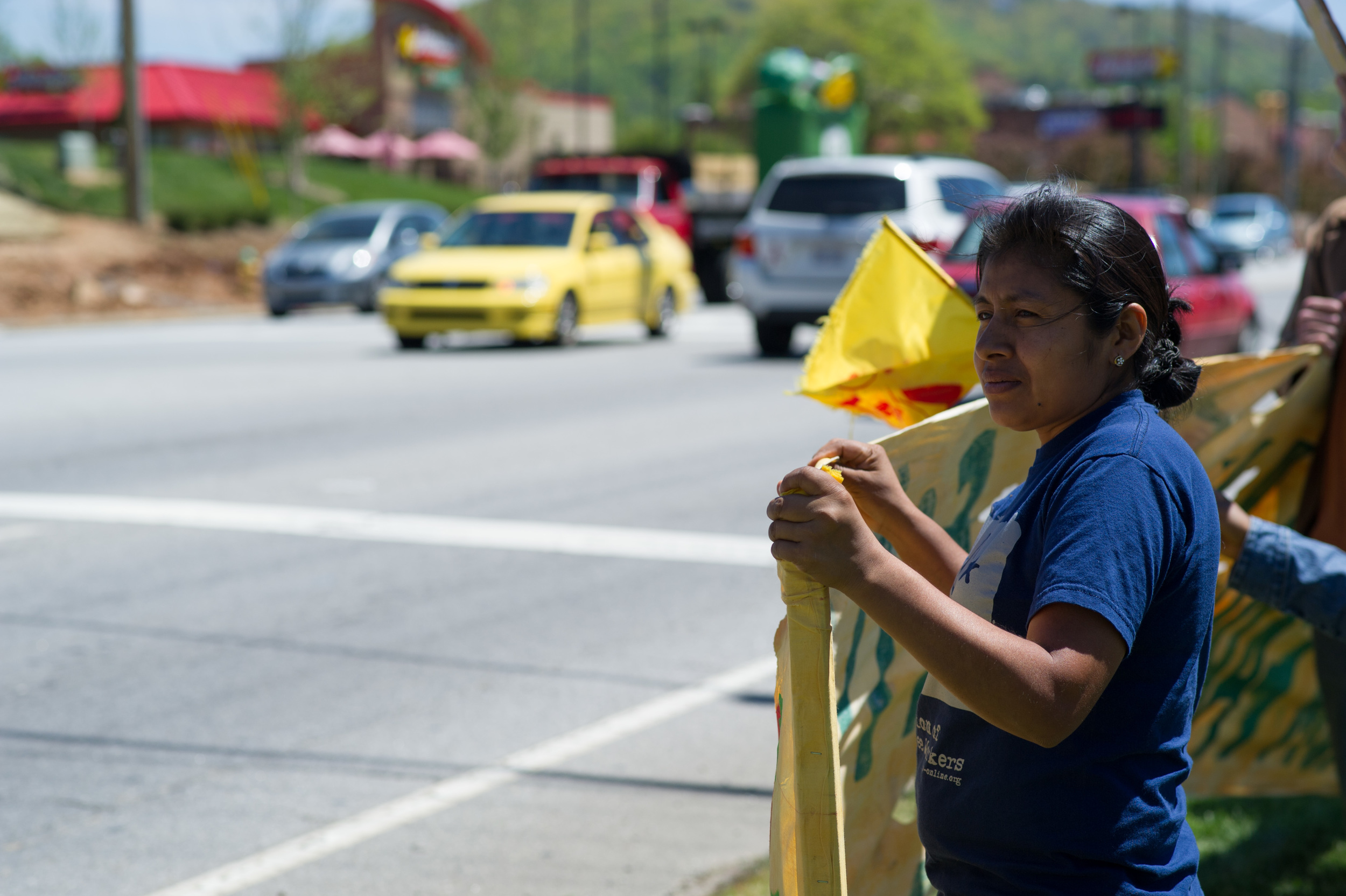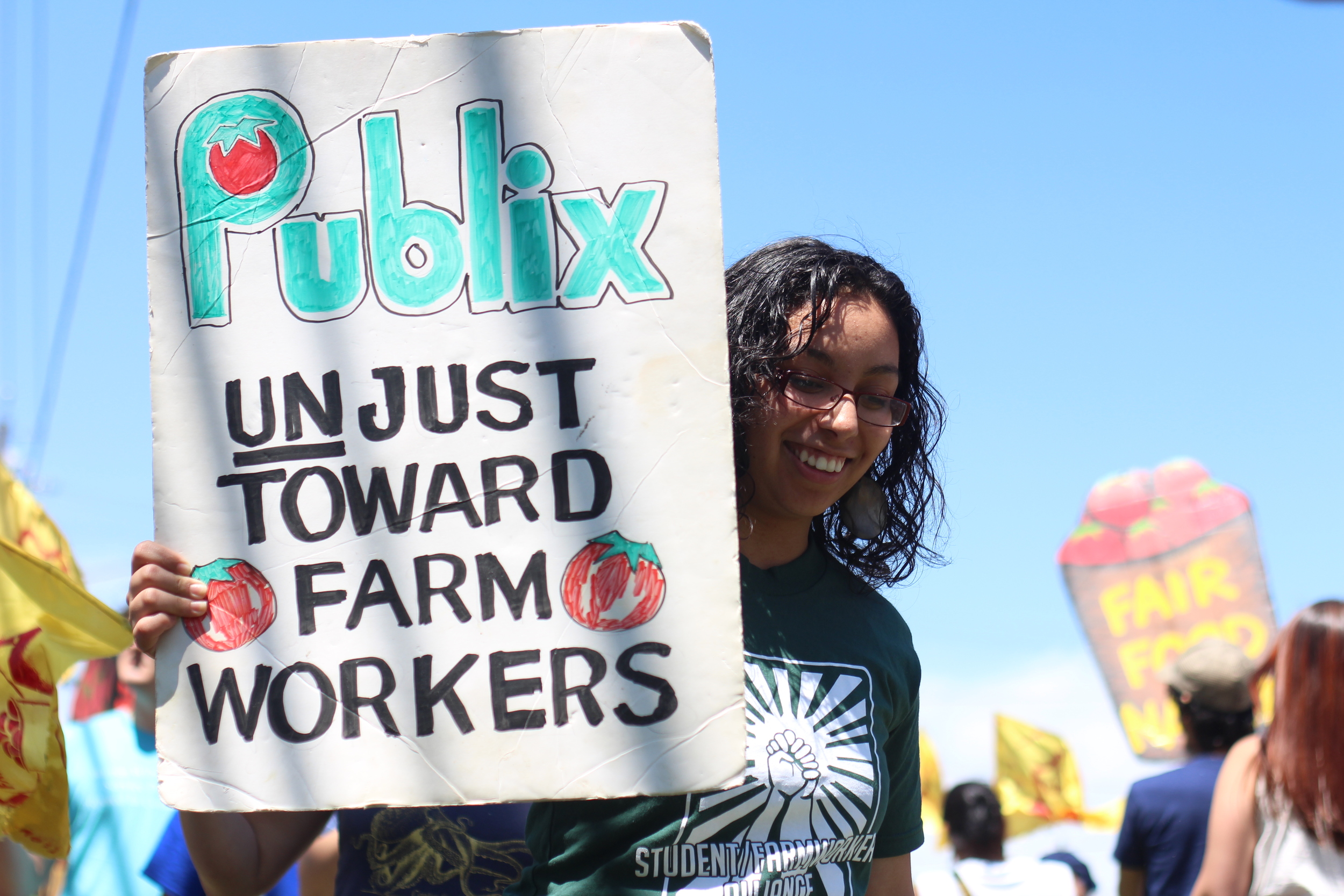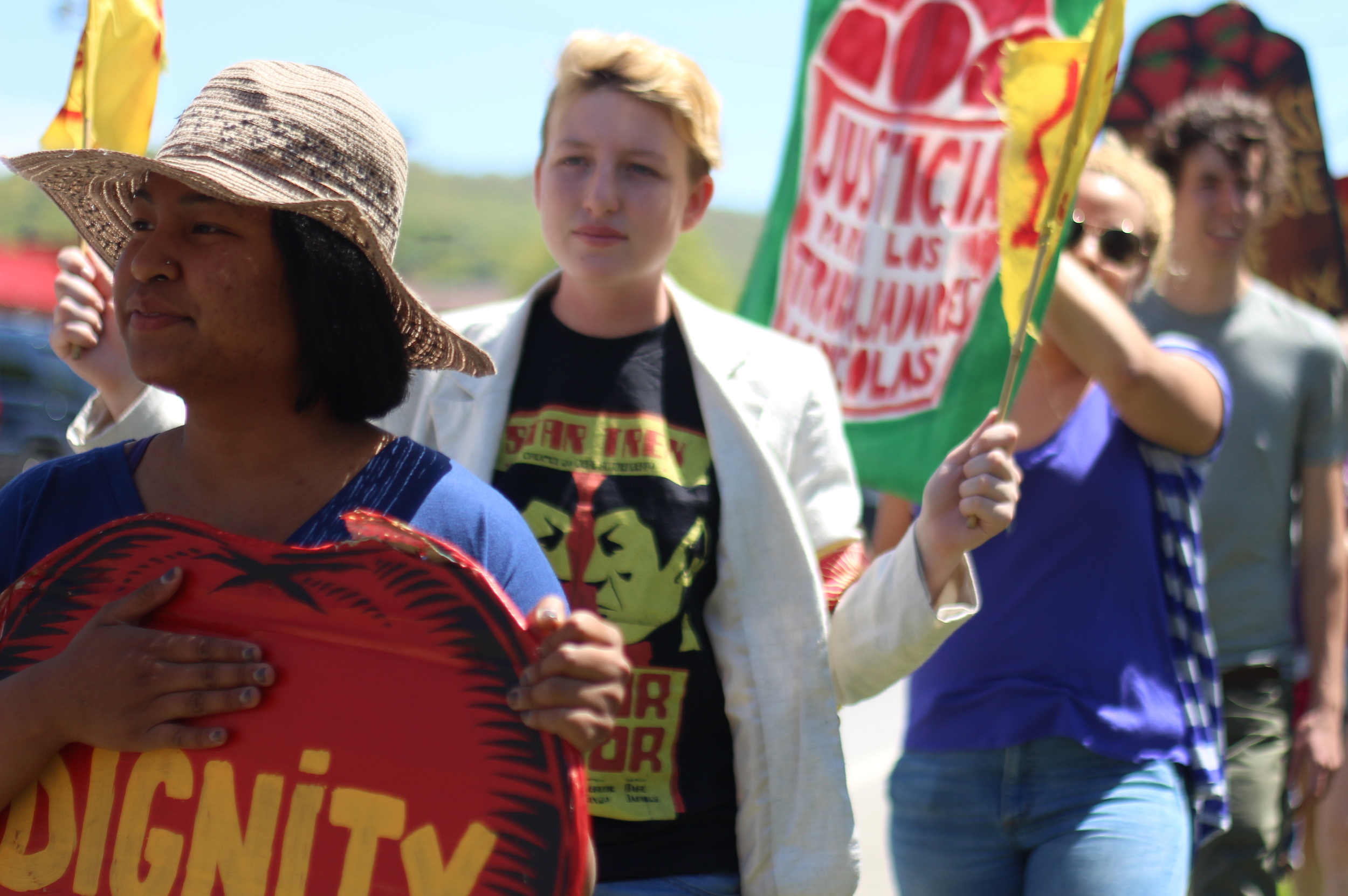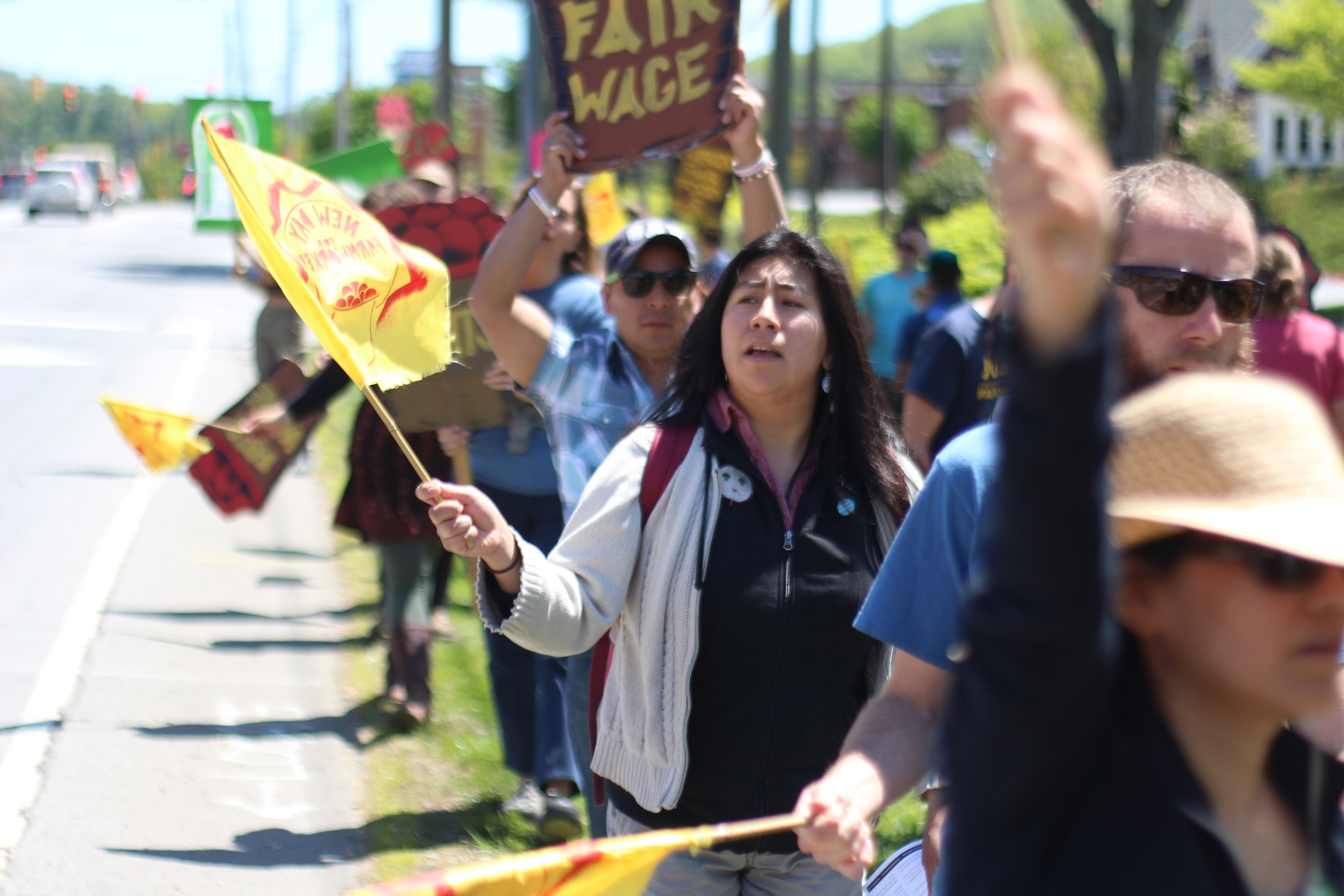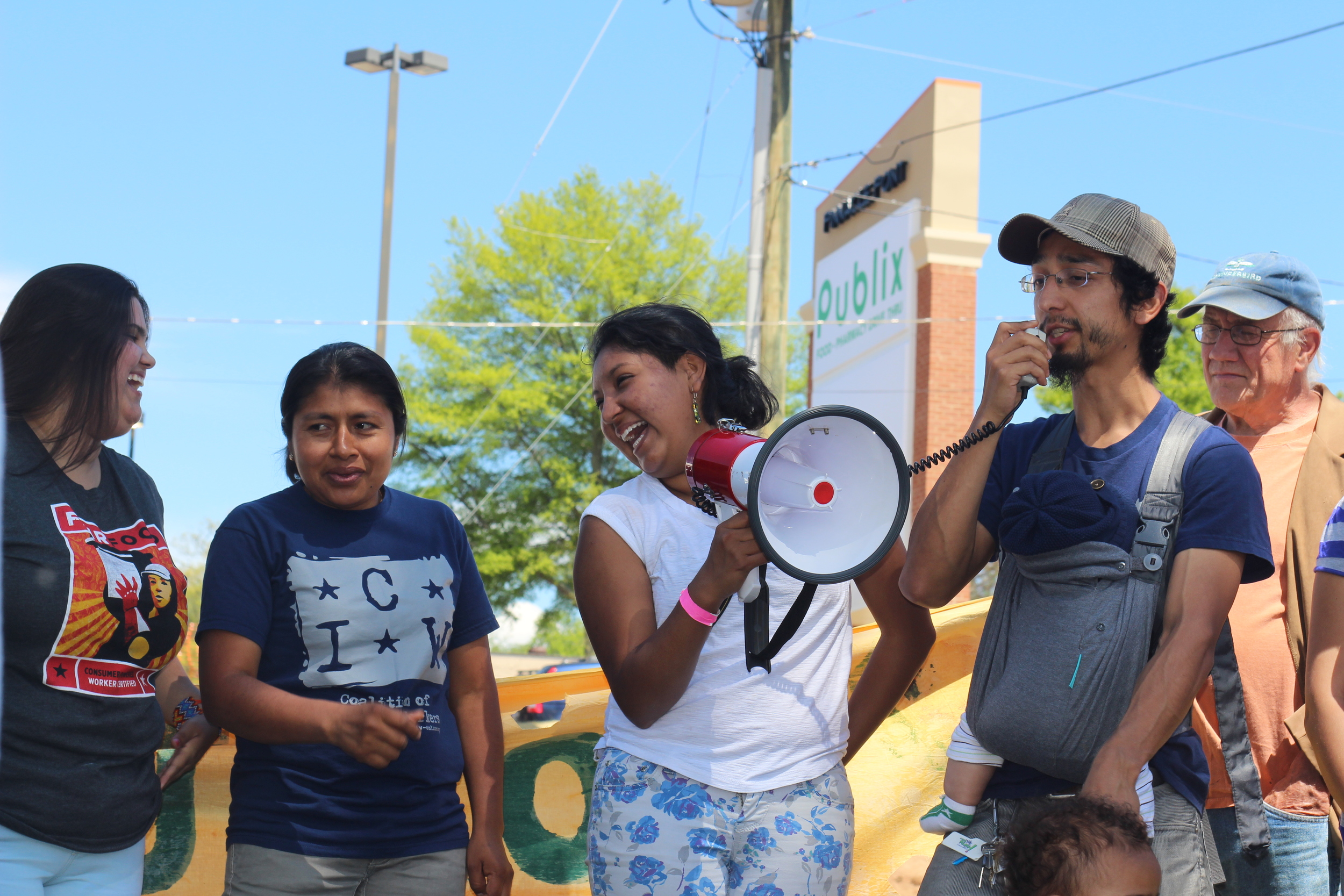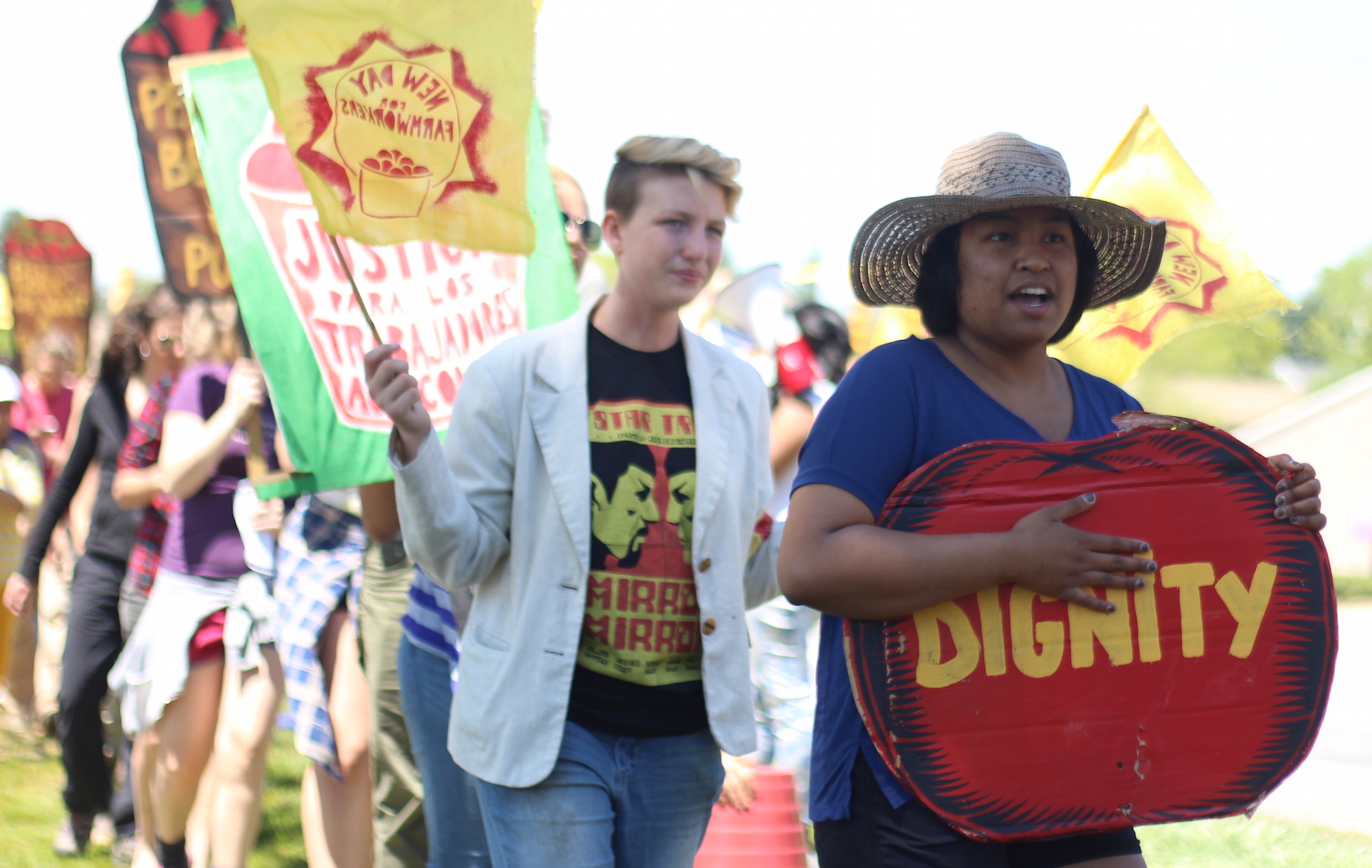This past Thursday, in a classroom just miles from Fair Food holdout Publix’s corporate offices in Lakeland, FL, a crowd of over 60 Southeastern University students, professors, staff, and Lakeland community members learned for the first time ever of the CIW’s groundbreaking work for farmworker justice — and of the shameful, six-year refusal of their hometown supermarket, Publix, to be part of it. Deeply moved by the first-ever Lakeland screening of Food Chains — the film featuring the CIW’s 2012 six-day fast in front of Publix Headquarters in Lakeland itself — a presentation by the CIW, and a peaceful march and vigil at a nearby Publix, the dozens-strong assembly left the event with a profound commitment to carrying forward both the message of the new day dawning through the Fair Food Program and the ever-strengthening call for Publix to be part of it.
If you have watched Food Chains, you have accepted an invitation from the CIW to learn of a 20+ year struggle for an end to the rampant wage theft, health dangers, sexual harassment, poverty wages, discrimination, and in extreme cases, forced labor, that has marked agricultural labor in this country for so long. You have also born witness to farmworkers and allies fasting for six days in 2012 at Publix headquarters — which is only one moment in a six-year long campaign to call on Publix to dialogue with the CIW. And, most crucially, you have been personally invited to call on Publix to be part of the proven solution to farmworker exploitation which is transforming an entire industry. For many of the attendees of this Lakeland screening, this was their first time receiving this moving invitation. Their response was clear: an intense excitement and sense of purpose lent by the tremendous gains of the CIW, and heavy dismay that their hometown grocer has refused to take responsibility for farmworker rights in their supply chain.
After the film’s credits ran, the audience heard the powerful testimony of the CIW’s own Silvia Perez, Julia de la Cruz, and Lupe Gonzalo to the dramatic human rights advances in the fields in the three short years since the film was made. The engagement, openness, and earnestness of the audience was tangible as they brought forth questions about the Fair Food Program and the potential role that Publix could play in it. One audience member shared that her family was currently working in the fields in Georgia, and she was so glad to hear of the incredible gains of the Fair Food Program in Florida tomato fields; she asked if these changes would also take root in Georgia. Julia gladly answered that yes — for the first time ever this summer, the Fair Food Program had expanded not only to Georgia tomato fields, but also to fields in Virginia, the Carolinas, and New Jersey.
Galvanized by a fresh understanding of their connection to the CIW’s work — not only as people and consumers, but also as Lakelanders — the audience began a peaceful march towards a nearby Publix holding signs saying “SEU Students to Publix: Join the Fair Food Program!,” “SEU Stands With Farmworkers,” and “Publix, Love Thy Neighbor.” Pausing at a statue of Jesus, a centerpiece of campus, respected SEU professor Dr. Kenneth Archer led the group in a prayer expressing how proud he and other Lakelanders are to stand with farmworkers and amplifying the call for Publix to “do justice, love mercy, and walk humbly with your God.” The students, professors, staff, and community members then marched a mile to Publix, accompanied by supportive honks and curious looks along the way.
Upon reaching Publix, the participants lit candles and proceeded to share a series of reflections, prayers and songs to close out the evening. Silvia Perez of the CIW delivered a powerful message on the CIW’s long call to Publix to come to the table with farmworkers:
“There are now fourteen corporations that are part of the Fair Food Program, and we want Publix to be among them — to take responsibility for human rights in their supply chain. … Over the past six years, we have taken so many forms of public witness here in Lakeland — a six day fast, a peaceful march of 200 miles, prayers inside the store. We’ve done so much to communicate this call to Publix, and in all this time, they refused to even dialogue. It’s beautiful that we now have fourteen corporations cooperating with the Fair Food Program — they are paying the penny more per pound, they are listening to workers, they are taking responsibility, and the sexual harassment, wage theft, and other abuses that have existed for so long are finally ending. Often times when we go to talk with Publix managers, they say that this is a labor dispute and they won’t get involved, which we know is not the case — all we are asking them to do is to take the responsibility that they must, and work with us. … We are proud to stand next to you today, because you are the consumers and you’re bringing your voice here and together we are united. We hope that Publix won’t take too much longer and will take our message to heart and will become part of what we are doing today.”
Three SEU students and Lupe Gonzalo of the CIW then carried a letter signed by all of the screening attendees to Publix management, extending the invitation once again to Publix to sit at the table with farmworkers — adding to the thousands of letters that have been delivered to Publix locations over the past six years. The delegation was escorted by several Publix representatives, flanked by police, and relegated to the side of the parking lot. Students expressed conviction that by denying farmworkers humanity and their connection to it, Publix executives are denying their own humanity; that while they grew up shopping at Publix and have appreciated Publix, they are shocked by their refusal to join the Program. One student shared that he came from a family of growers, and knows what it is to be in the agricultural business — but also grew up seeing immigrant workers in the fields and saw them work “harder than you could even imagine” to feed their families — and make the food on stores like Publix’s shelves possible. He was shocked and saddened to hear that Publix, known as a people-centered company, has taken this stance. Each student expressed that they can no longer shop at Publix in good conscience.
Students closed the vigil on a resolute note, expressing gratitude for the opportunity to work in solidarity with farmworkers for justice in the fields, and committing to continue to bring the struggle for Fair Food to the heart of Publix’s community in Lakeland. As student (and Immokalee intern extraordinaire) Priscilla Vélez put it, “It is our duty and our responsibility to listen to farmworkers… As members of the Lakeland community, we will not continue letting this happen where Publix has their headquarters.”












